A Guide to Lovebird Care: Love Birds Food, Treats and More!
Today we'll cover everything from diet and housing to toys and enrichment. So if you're thinking about getting love birds as a pet, then this blog is for you.
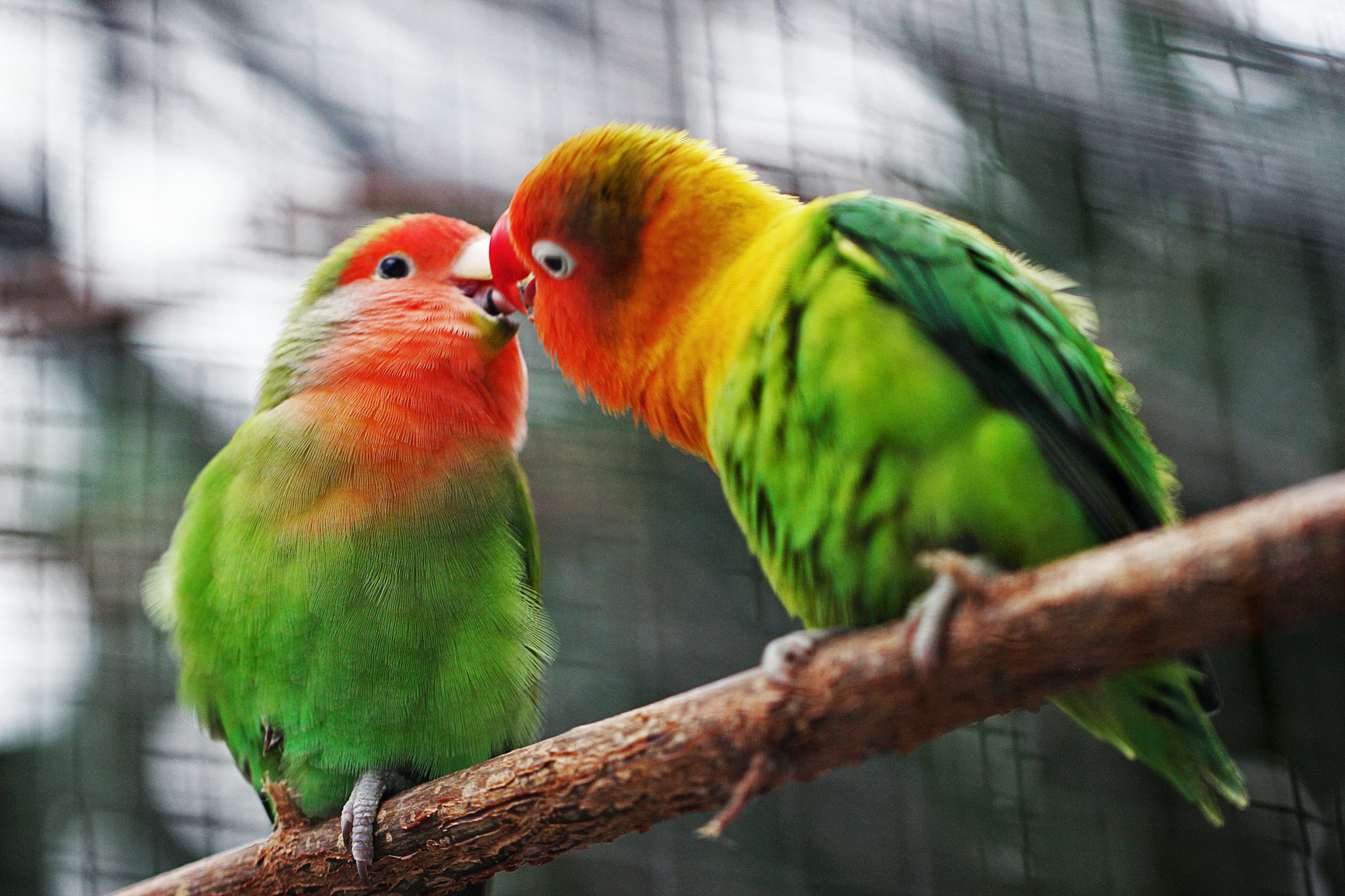
Key Takeaways:
- Lovebirds require a varied diet to stay healthy, including fresh fruits, vegetables, and formulated diets.
- Proper food and water dishes are essential for maintaining a clean and healthy environment for your lovebirds.
- Regular consultation with an avian veterinarian ensures that your lovebird's diet meets all their nutritional needs.
Introduction
Lovebirds are charming, vibrant, and full of personality. As pet owners, we continually strive to provide the best care for these delightful creatures. One of the most critical aspects of lovebird care is their diet. A proper diet ensures that lovebirds stay healthy, active, and happy. This guide will delve into the essentials of lovebird care, focusing on their food, treats, and more.
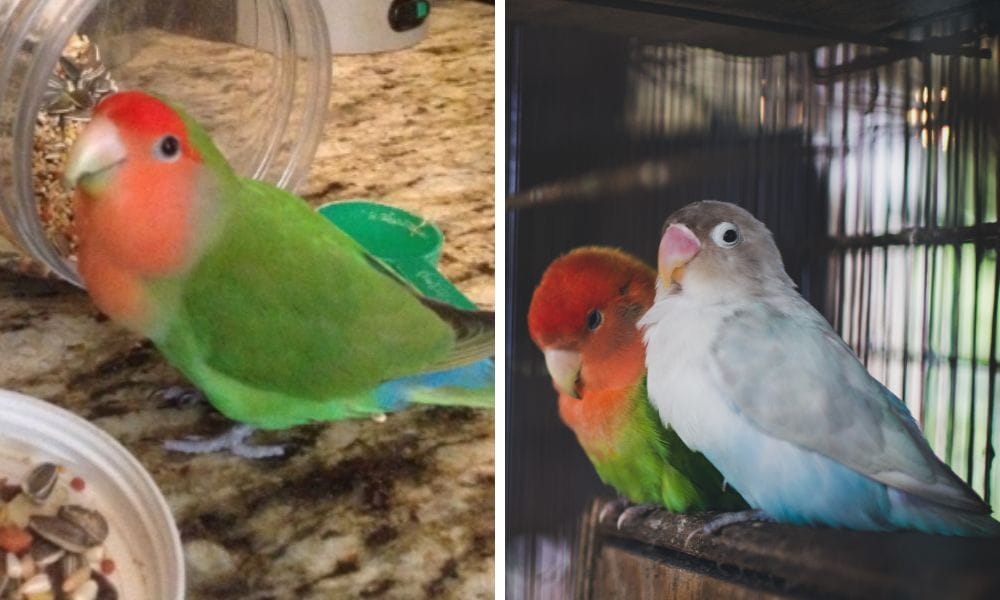
Understanding Lovebird's Diet
A lovebird’s diet should be as varied as possible to mimic what they would eat in the wild. Understanding a bird's diet is crucial, and this includes a mix of seeds, fresh fruits, vegetables, and formulated diets. While seeds like sunflower seeds are a favorite, they should not be the only food item in their diet due to their very little nutritional value. Instead, a balanced diet that includes pelleted foods and fresh foods is ideal.
Pelleted diets are formulated to provide all the necessary nutrients that lovebirds need. These diets are designed to enhance the bird’s nutritional health and are often recommended by avian veterinarians. Fresh foods, such as fruits and vegetables, should also be included in their diet to provide additional vitamins and minerals.
Food and Water Dishes
Choosing the right food and water dishes is crucial for maintaining a clean and healthy environment for your lovebirds. Each food dish should be easy to clean and sturdy enough to withstand the bird’s activity. Stainless steel or ceramic dishes are often recommended as they are durable and easy to sanitize.
Water dishes should be changed daily to ensure fresh water is always available. Lovebirds can be messy eaters, so it’s essential to keep their food and water dishes clean to prevent the growth of bacteria and mold. Separate dishes for food and water help maintain hygiene and prevent contamination.
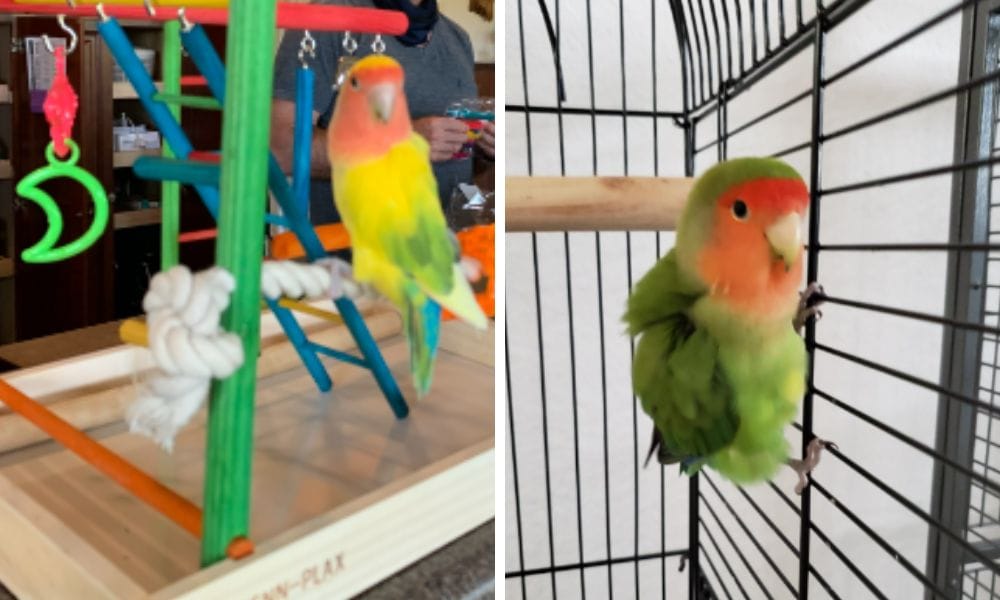
Converting Seed-Eating Birds
Many lovebirds are initially seed eaters, but seeds alone do not provide a balanced diet. Converting seed-eating birds to a more nutritious, formulated diet can be challenging but is essential for their health. Start by gradually mixing pelleted foods with their seeds, slowly increasing the amount of pellets over time.
Offering fresh fruits and vegetables can also help in the transition. Lovebirds are curious by nature, and they may be more willing to try new foods if they see their owners eating them. Hand-raised babies are often easier to convert as they are more accustomed to human interaction and new experiences.
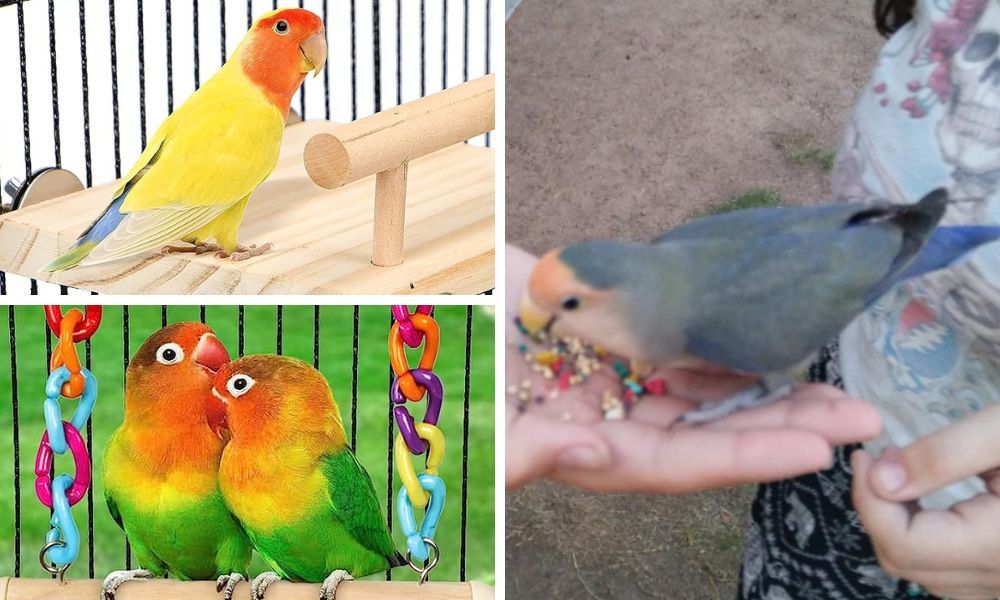
Fresh Foods and Treats
Fresh food is a vital part of a lovebird’s diet. Fresh fruits like apples, berries, and melons, and vegetables such as carrots, spinach, and bell peppers provide essential vitamins and minerals. These foods should be washed thoroughly and cut into small, manageable pieces.
Treats like millet spray and honey sticks can be given occasionally but should not replace their regular diet. These treats are high in sugar and fat and can lead to poor nutrition if overfed. It’s essential to offer a variety of fresh foods to ensure a well-rounded diet.
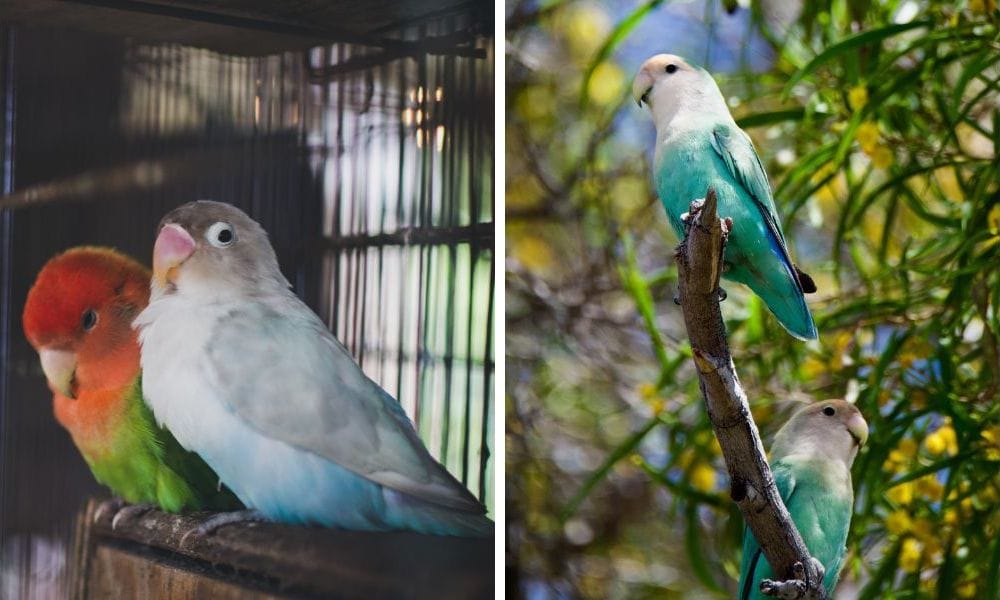
Commercial Seed Mixes
Commercial seed mixes are a common choice for many lovebird owners. However, these mixes often contain seeds with very little nutritional value. While they can be part of the diet, they should not be the primary food source. Mixing seeds with pelleted foods and fresh foods can help provide a more balanced diet.
Different formulations of seed mixes are available for different life stages of lovebirds. For example, conditioning foods are designed for molting birds, while breeding mixes are formulated for lovebirds laying eggs. It's essential to choose the right mix for your bird's specific needs.
Nutritional Supplements
Nutritional supplements can be beneficial for lovebirds, especially if their diet lacks certain vitamins and minerals. Calcium supplementation is crucial for breeding females to prevent egg binding. Powdered supplements can be sprinkled on fresh foods, mixed with water, or administered on moist food to encourage intake, particularly when transitioning birds from an all-seed diet to pellets.
However, it’s essential to consult with an avian veterinarian before adding supplements to your bird’s diet. Over-supplementation can lead to health problems, so it’s crucial to find the proper balance. Regular check-ups with a vet can help ensure that your lovebird’s diet meets all their nutritional needs.
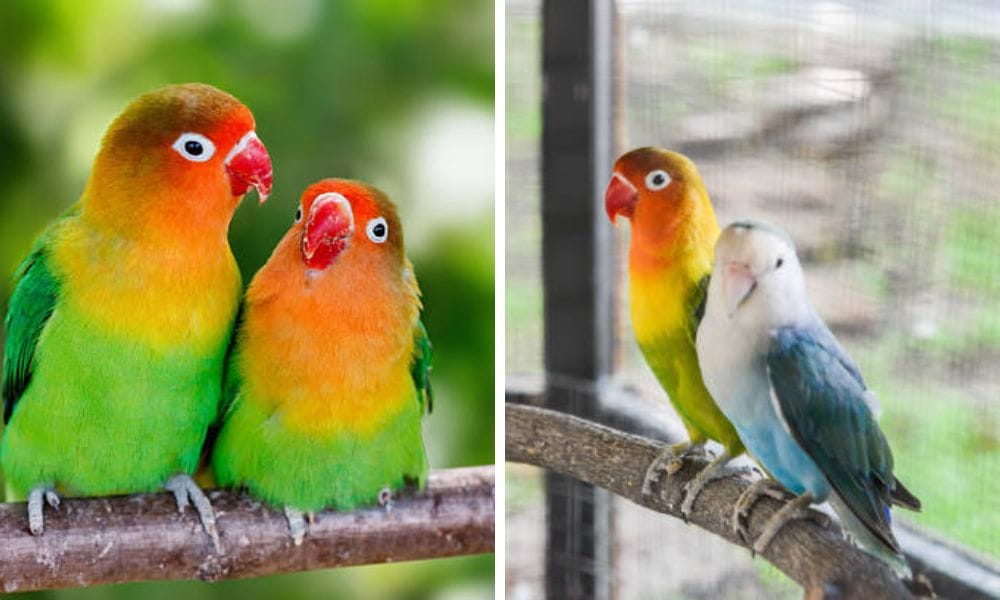
Foods to Avoid
Certain foods can be toxic to lovebirds and should be avoided. Avocado, chocolate, caffeine, and alcoholic beverages are all potentially toxic and can cause severe health issues. Additionally, pale vegetables like iceberg lettuce have very little nutritional value and should not be part of their diet.
It’s also essential to avoid feeding lovebirds junk food or foods high in sugar and fat. Instead, focus on providing wholesome, nutritious food to ensure a balanced diet. These foods can lead to obesity and other health problems. Always use common sense when choosing foods for your lovebird and consult with an avian veterinarian if you have any doubts.
Feeding Different Life Stages
Lovebirds, like any pet bird, have different nutritional needs at various life stages. Young lovebirds, for example, require a diet high in protein and calcium to support their growth. Hand-raised babies may need to be fed more frequently and with specific foods designed for their development.
Mature lovebirds, on the other hand, may require a diet lower in fat to prevent obesity. Breeding lovebirds need extra vitamins and minerals to support egg production and the health of their chicks. It’s essential to adjust their diet according to their life stage to ensure they receive the proper nutrients.
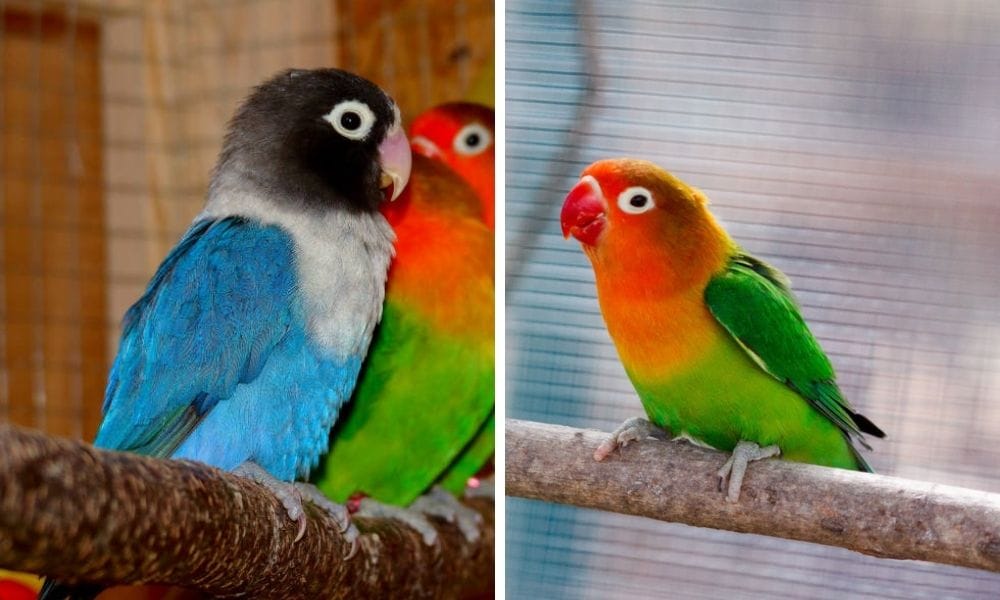
Fresh Fruits and Vegetables
Fresh fruits and vegetables should be a staple in a lovebird's diet. Fruits like apples, pears, and berries provide essential vitamins, while vegetables like carrots, broccoli, and leafy greens offer vital minerals. These foods should be washed thoroughly and cut into small pieces to make them easier for the lovebirds to eat.
Offering a variety of fresh fruits and vegetables can help prevent boredom and encourage healthy eating habits. It's essential to introduce new foods gradually and observe how your lovebird reacts to them. Some birds may be hesitant to try new foods, but with patience and persistence, they can learn to enjoy a varied diet.
The Importance of Fresh Water
Fresh water is essential for a lovebird's health. Water dishes should be cleaned and refilled daily to ensure that the water remains fresh and free from contaminants. Lovebirds can be messy, so it's crucial to monitor their water dishes and clean them regularly.
Providing fresh water also helps prevent dehydration, which can lead to severe health issues. In addition to water dishes, some lovebird owners use water bottles designed for birds to keep the water clean and reduce spillage. Ensuring that your lovebird has access to fresh water at all times is vital for their well-being.
The Role of Pelleted Foods
Pelleted foods play a significant role in a lovebird's diet. These foods are formulated to provide all the essential nutrients that lovebirds need to stay healthy. Unlike seeds, which can be high in fat and low in nutrients, pelleted foods offer a balanced diet.
Introducing pelleted foods to a lovebird's diet can be challenging, especially if they are used to eating seeds. Gradually mixing pellets with seeds and offering them alongside fresh foods can help with the transition. Consulting with an avian veterinarian can also provide guidance on the best pelleted foods for your lovebird.
Common Health Problems Related to Diet
Poor nutrition can lead to various health problems in lovebirds. Obesity, for example, is a common issue caused by a diet high in seeds and low in fresh foods. Obesity can lead to other health problems, such as fatty liver disease and heart issues.
Vitamin deficiencies are another concern, especially if the diet lacks fresh fruits and vegetables. A lack of vitamin A, for example, can lead to respiratory issues and weakened immune systems. Regular check-ups with an avian veterinarian can help identify and address any nutritional deficiencies.
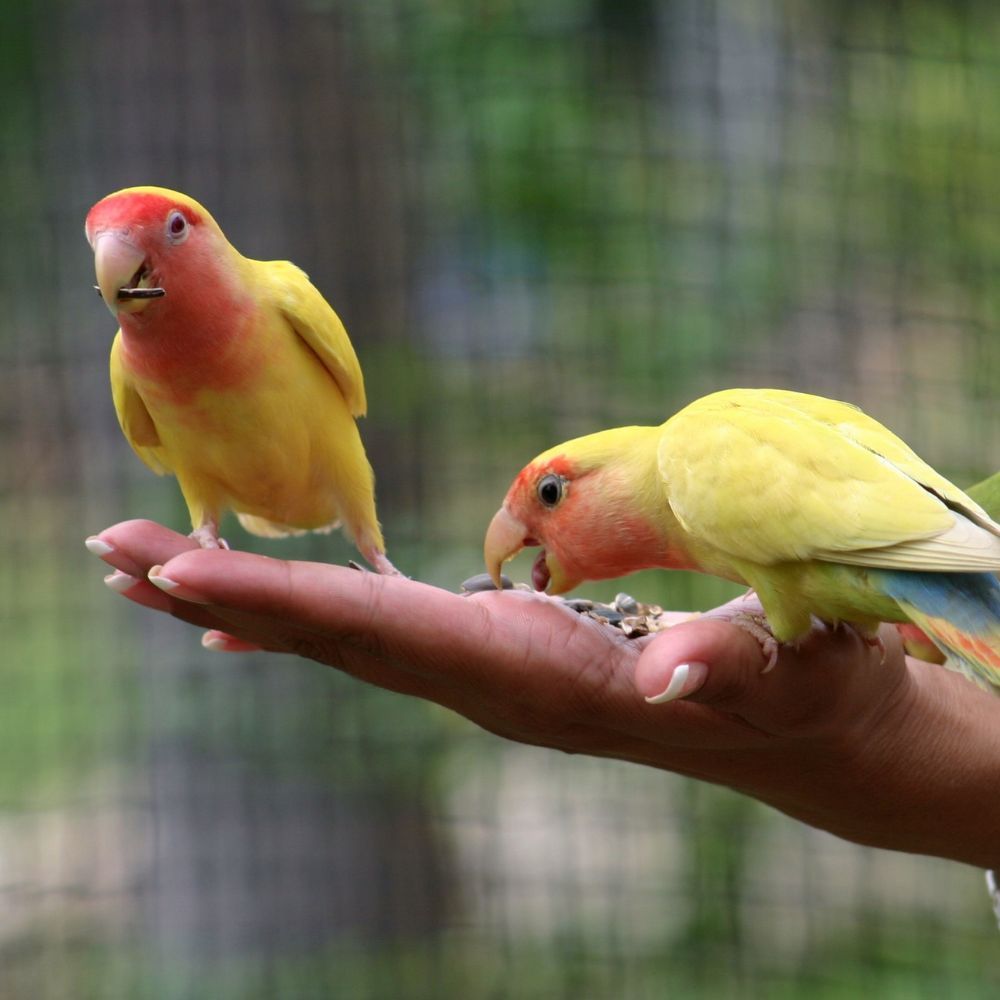
The Benefits of a Varied Diet
A varied diet is essential for a lovebird's health and well-being. Offering a mix of seeds, pelleted foods, fresh fruits, and vegetables ensures that they receive all the necessary nutrients. A varied diet also helps prevent boredom and encourages natural foraging behaviors.
Lovebirds are curious and intelligent birds that enjoy exploring different foods. Providing a variety of food items can stimulate their minds and keep them engaged. It's essential to continually strive to offer new and different foods to keep their diet interesting and nutritious.
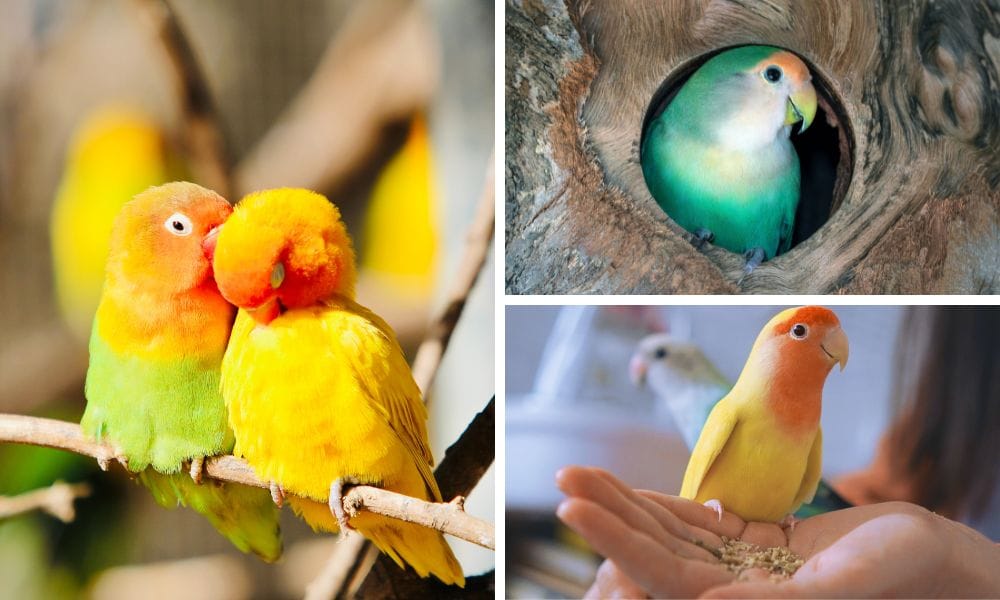
The Role of Treats in a Lovebird's Diet
Treats can be a fun and rewarding part of a lovebird's diet, but they should be given in moderation. Treats like millet spray and honey sticks are high in sugar and fat and should not replace their regular diet. Instead, use treats as a way to bond with your lovebird and encourage positive behaviors.
Offering treats during training sessions or as a reward for good behavior can help strengthen the bond between you and your lovebird. It's essential to choose healthy treats and avoid overfeeding to prevent obesity and other health issues.
Consulting with an Avian Veterinarian
Regular consultation with an avian veterinarian is crucial for maintaining a lovebird's health. An avian vet can provide guidance on the best diet for your lovebird and help identify any nutritional deficiencies. They can also recommend specific vitamins and supplements if needed.
Regular check-ups with an avian veterinarian can help catch any health issues early and ensure that your lovebird's diet meets all their nutritional needs. It's essential to build a relationship with a trusted avian vet and seek their advice on any dietary concerns.
Summary
Caring for lovebirds involves providing a varied and nutritious diet that includes seeds, pelleted foods, fresh fruits, and vegetables. Proper food and water dishes, regular consultation with an avian veterinarian, and offering healthy treats are all essential aspects of lovebird care. By understanding and meeting their dietary needs, you can ensure that your lovebirds stay healthy, happy, and full of life.
FAQ
What foods should I avoid feeding my lovebird?
Avoid feeding your lovebird avocado, chocolate, caffeine, and alcoholic beverages, as these can be toxic. Also, steer clear of junk food and foods high in sugar and fat.
How can I convert my seed-eating lovebird to a pelleted diet?
Gradually mix pelleted foods with seeds, slowly increasing the amount of pellets over time. Offering fresh fruits and vegetables can also help in the transition.
How often should I clean my lovebird's food and water dishes?
Food and water dishes should be cleaned daily to prevent the growth of bacteria and mold. Fresh water should be provided daily, and food dishes should be washed regularly to maintain hygiene.
If you are looking for the top-rated food for your lovebird, look no further. Click the link below to view a selection of only the best birdseed! Here you will find food items of only the highest quality, all with great reviews from people who have already purchased them. Plus, you get to take advantage of special discounts and free shipping options. Don't delay; visit the link now and see what amazing products await you! Your lovebird will thank you later.

